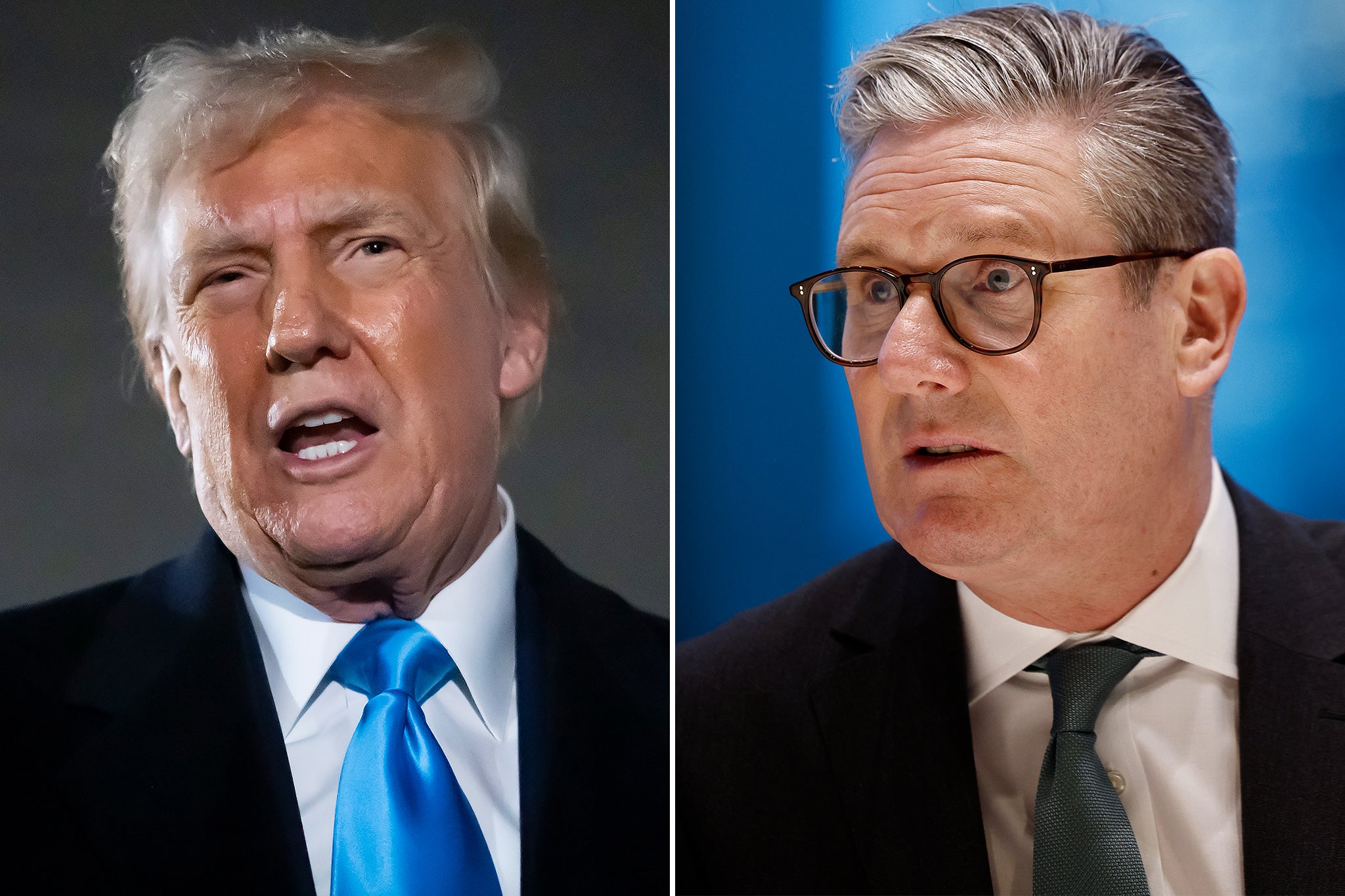Under pressure Rachel Reeves has been given a welcome boost by optimistic new growth figures – but was warned that threatened tariffs from Donald Trump could damage the UK economy.
Economists at the National Institute of Economic and Social Research (Niesr) said Britain could become the third fastest growing country in the G7 this year – but the economy would be knocked if there was a trade dispute with the divisive US president.
Niesr said it was projecting that the UK economy would grow by 1.5 per cent this year, lifting its previous forecast of 1.2 per cent, which is mostly driven by the spending programme announced by the chancellor in the October Budget.
However, economists at the top think-tank warned that GDP growth was likely to be 0.2 percentage points lower in the first year of tariffs if they were implemented by president Trump.
Extra costs on goods entering the US could also fuel inflation and delay interest rate cuts, affecting mortgages, the Niesr warned.
The revelation increases pressure on Sir Keir Starmer to secure a carve out for the UK after president Trump said he could exempt Australia from punishing tariffs on steel.

The US president triggered panic over the future of Britain’s fragile industry on Monday when he announced a worldwide 25 per cent tariff on steel imports.
Mr Trump has hailed his planned steel tariffs, claiming they are “the beginning of making America rich again”.
But he also announced on Tuesday he would give “great consideration” to handing Australia a carve-out because of a trade surplus.
And, in a blow to Britain’s hopes, he added: “We have a huge deficit with the UK,” although that is driven by services rather than goods.
Australia has made the case for a special deal in recent days, with the country’s trade minister arguing its steel and aluminium exports created “good-paying American jobs” and were important to shared defence interests.
On Monday night Ms Reeves said she and Sir Keir would argue for an exemption from the tariffs for the UK.
She said “there is a deal to be done”, adding that “unlike many other countries around the world, we don’t run a trade surplus with the US”, during a recording of the Political Party podcast with Matt Forde.
The UK’s new ambassador to Washington Peter Mandelson has also warned against “overreacting”, as he said: “I don’t believe that his tariffs are actually directly targeted at us.”
During an urgent question in the Commons, trade minister Douglas Alexander said “we stand ready to work with President Trump to find solutions that work for the UK and the US”.
Buy shadow trade minister Dame Harriet Baldwin hit out at the government, saying the PM should have “got on a flight to the States at the first possible opportunity” as she criticised “years of student politic-style insults hurled at the president by the frontbench opposite” which she said had put the UK’s relationship with the US “in jeopardy”.
Liberal Democrat Treasury spokesperson Daisy Cooper said the Niesr figures showed that “Trump’s pursuit of a global trade war will clobber our stagnating economy and make it even harder to rebuild our already broken public services.”
“Ministers cannot just bury their heads in the sand and refuse to face up to reality. We have to deal with Trump from a position of strength,” she added.
The UK government is not minded to retaliate with tariffs, in contrast to the EU. As well as hitting UK exports to the US, a global trade war could see an influx of cheaper imports that would put British suppliers out of business.
No 10 claimed the special relationship with the US was “very good” – days after the 25% steel tariffs were announced.
Asked about a possible deal for the UK, Downing Street also declined to get into detail on any discussions.
The steel industry has called for action to mitigate what could be a “devastating blow”.
The UK exported 166,433 tonnes of steel to the US in 2023, the last full year for which figures are available. The US is the world’s second-largest export market after the EU, although the government said it had only accounted for 5 per cent of UK steel exports in 2023.
The NIESR said that if GDP did rise by 1.5 per cent it would make the UK one of the top performers in the G7.
They credit measures Ms Reeves unveiled in her Budget late last year but warn these will provide only a “temporary” improvement and long-term growth will come from more fundamental changes such as widescale planning reform.
Professor Stephen Millard, NIESR interim director, said: “Although consumer and business confidence fell at the back end of last year leading to a flattening of GDP, we expect 2025 to be better as the large increase in government spending announced in the October budget kicks in. However, this will only be a temporary boost.
Much more important for long-run growth will be increased private and public investment and the planning reform needed to enable this to happen.”
Professor Adrian Pabst, deputy director for public policy, said that higher economic and real wage growth would “provide a welcome relief for millions”. “But the recovery is slow, and more should be done to help the poorest 20 per cent of households,” he added.




